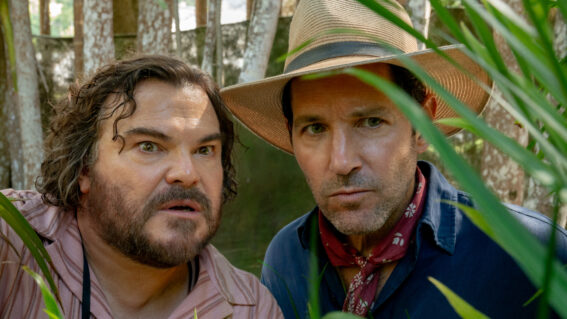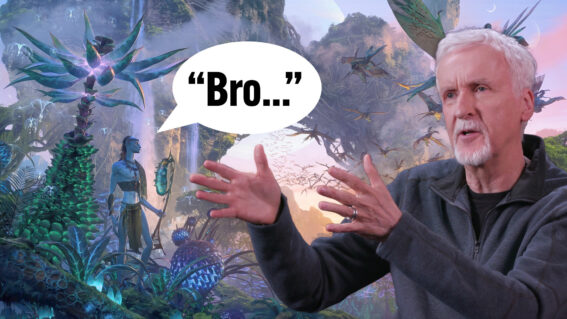Make propane great again? How King of the Hill understands Middle America
In King of the Hill’s new season, America’s favourite propane dad returns. Here’s why this show is more relevant than ever.
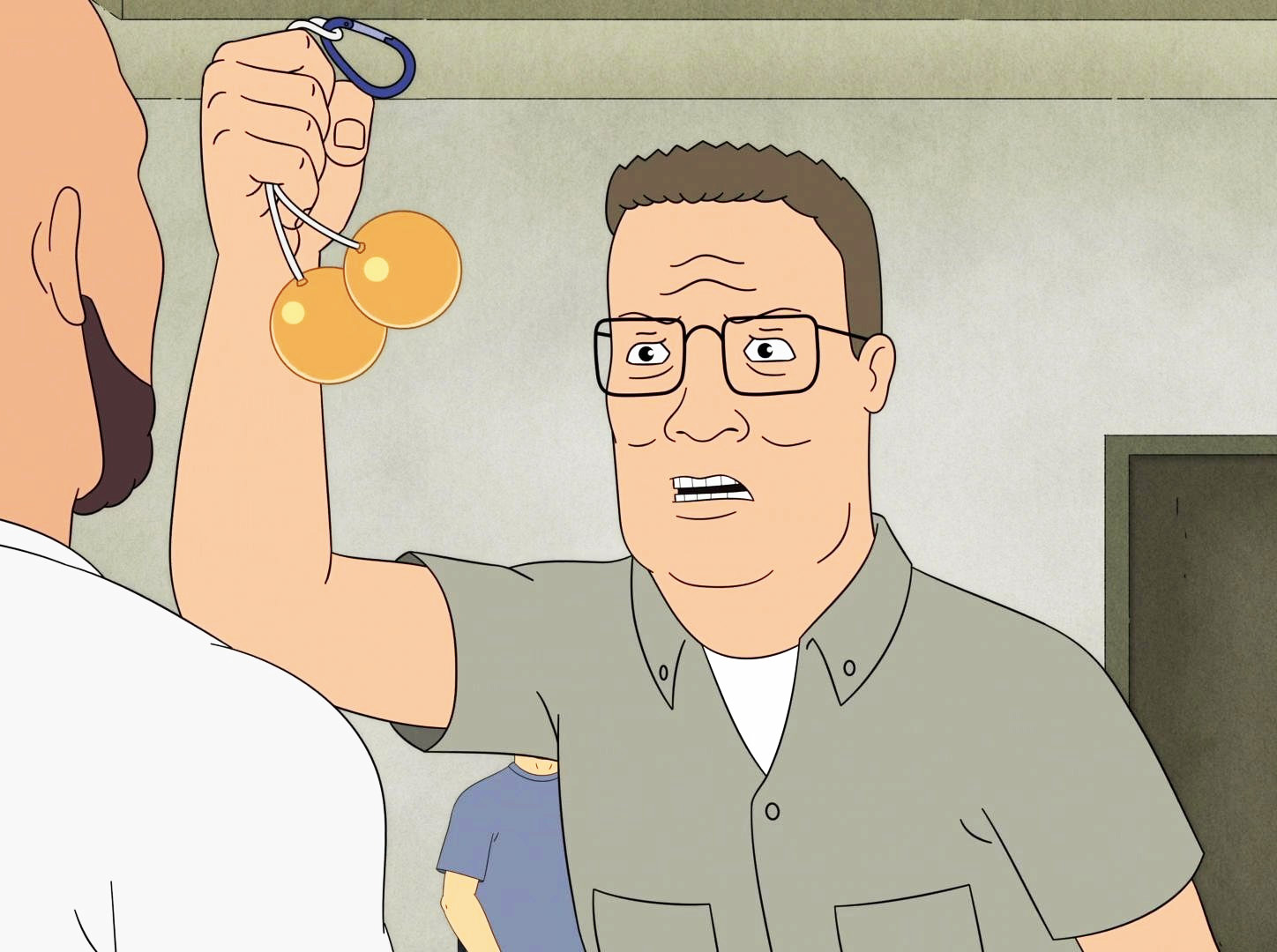
Hank Hill, gawd luv ‘im, you just know he’ll struggle with certain aspects of contemporary existence. Like all-gender bathrooms. The iconic Texan conservative—a “stern but fair” type with a famous passion for propane and propane accessories—has, like his friends and family, been away from our screens for the past decade and a half, this week returning in the fourteenth season of King of the Hill. The characters in Mike Judge and Greg Daniels’ great animated sitcom have always felt bizarrely real—far more so than in most live-action sitcoms.
Crafting a fully dimensional, endearingly imperfect creation like Hank requires all sorts of careful decisions and tightrope-walking. Especially in today’s politically volatile times, when the distance between Red and Blue, “us” and “them,” sane and psychotic can feel unbridgeably wide. In a clever touch, we learn that Hank and his wife Peggy have been disconnected from American culture, returning to their old Texan neighbourhood after a long time living in Saudi Arabia (on propane-related business).
This is smart, because it emphasises a general state of confusion rather than associating Hank with a particular brand of conservatism a la the Fox News cult and bile-spilling “anti-woke” brigade. In the first episode, he observes several examples of how times have changed, from different types of restaurants (“what kind of food is ‘poke’?”) to hybrid cars, apps, and, yes, all-gender bathrooms. He is, predictably, unconvinced by the latter, telling Peggy: “I don’t want to be presenting my maleness to any kind of woman who walks in on me. That’s how you get cancelled.”
This is good dialogue: think about where that joke could’ve gone; the directions it might’ve taken. It’s perfectly reasonable to feel uncomfortable about toilets, private parts, getting cancelled. It’s someting else for those feelings to coalesce into a prejudice-filled rant about minority communities, or some sweeping, disparaging comment drawing up ideological battle lines. Hank is mostly afraid of change. This response tells us more about his own insecurities than any inherent animosity towards others.
The protagonist however must remain bullish, pig-headed, set in his ways—enough to drive reasonable people up the wall. Like his now-21-year-old son Bobby, who is doing well for himself, running a Japanese fusion restaurant. In the third episode he competes in a home beer brewing competition with his old man. Hank, surprise surprise, isn’t a fan of the craft beer revolution: “Beers don’t need to tell stories,” he says. “They just need a fridge to keep them cold.”
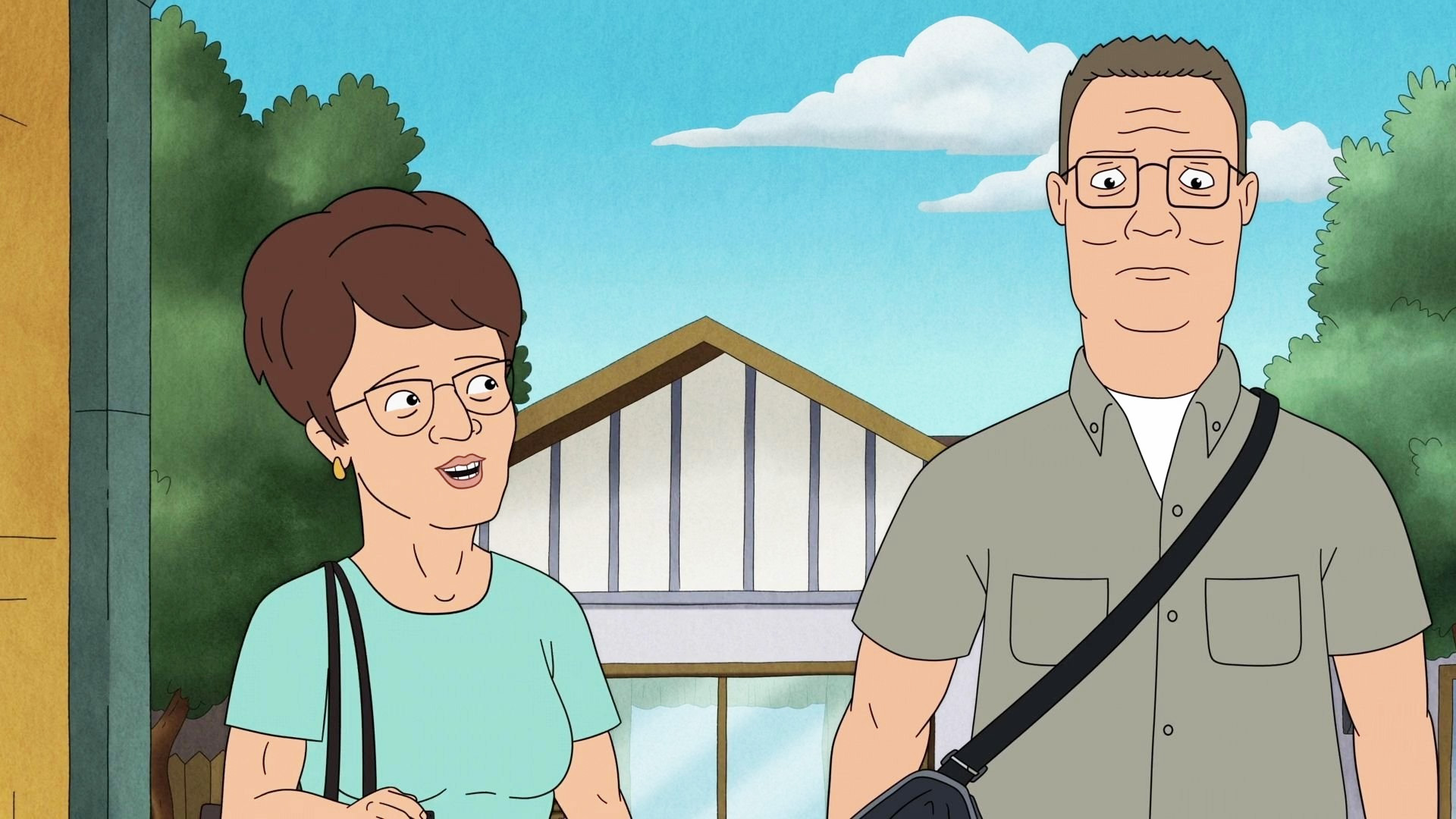
Would Hank and Peggy vote Trump? It’s an irresistible, $64,000 question. We all know the answer may well be “yes.” At the time of publishing, I’ve watched the first five episodes of the new season, and direct political references are rare. Obama was mentioned once, in the context of birthers. Hank exclaims: “Obama was born in Hawaii! That’s reason enough not to vote for him, without making stuff up.” This is another smart touch, reaffirming the character’s no-nonsense personality and re-establishing his conservatism, while hinting at some undefined, unreasonable assertion colouring his worldview.
King of the Hill‘s depictions of Middle Americans remind me of how the great Australian comedy The Castle presents its blue-collar characters—who love their crappy house, consider sponge cake a delicacy, and believe “medium-rare” equals “burnt to a crisp.” These people are funny, but it’s not a send-up; a send-up is too cruel. The writers have a genuine affection for them; they care rather than mock, while also treading a fine line, poking fun at their behaviour but resisting the convenience of punching down.
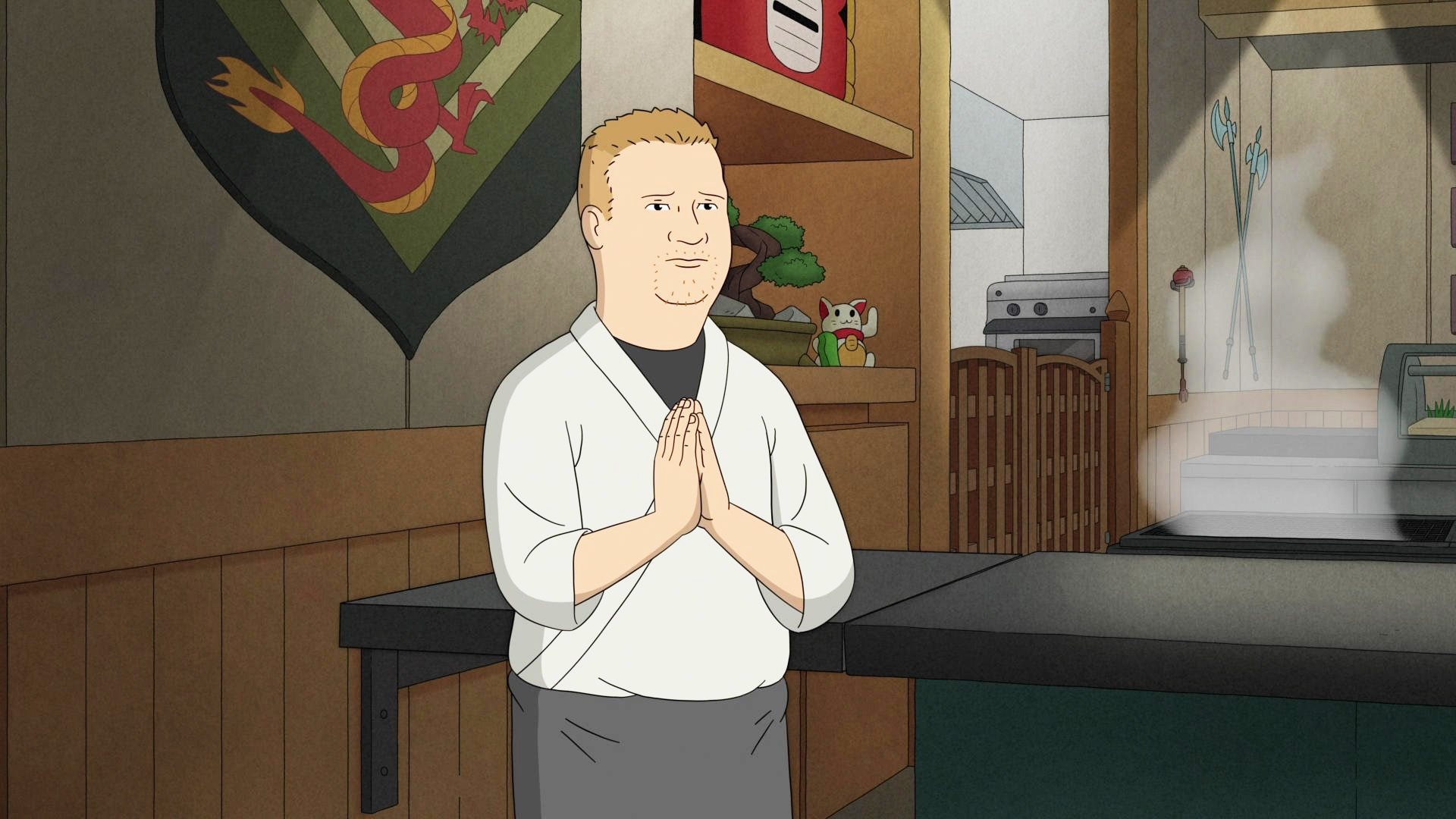
The essentially good-natured, humanistic qualities of King of the Hill push us away from the kinds of condescending language we might ordinarily apply to these people—i.e. rednecks and hillbillies. We know Hank doesn’t deserve that. He’s a stick in the mud; a traditionalist; stubborn as an ox; a person light years from many of us in terms of political sensibilities. But he means well and often tries his best.
Is that enough? One of the great mysteries of the present American condition, if we can call it that, is how people like Hank can be polite and reasonable in person, but vote for abject evil at the ballot box. It’s possible he’s one of those Republicans who recognises the party he once supported no longer exists. But it’s also possible he has a MAGA cap tucked away in his wardrobe.
And yet…we like him nonetheless. Is this, alone, proof that hope still exists? Should Hank Hill get the Nobel Peace Prize? Maybe not. But his steak-grilling skills and knowledge of propane remain undisputed.







